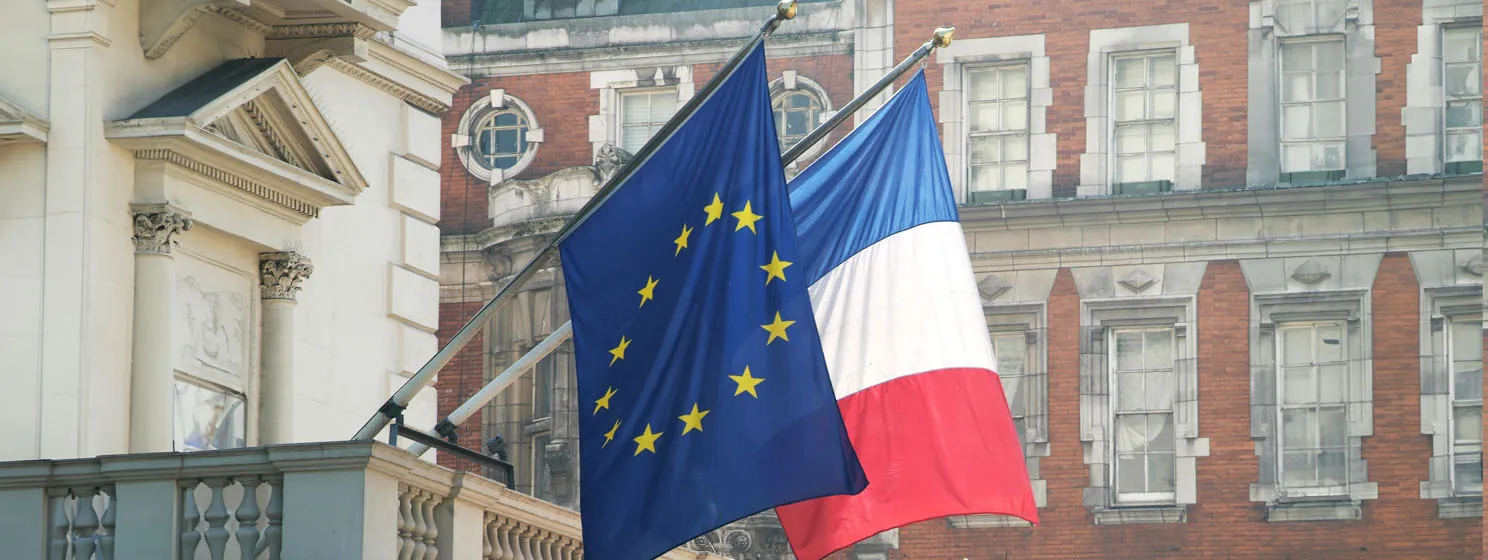|
Getting your Trinity Audio player ready...
|
Stablecoin giant Tether once again denies that it’s a target of U.S. law enforcement for allegedly violating economic sanctions and anti-money laundering (AML) rules.
On October 25, the Wall Street Journal reported that the U.S. Department of Justice (DoJ) was probing Tether regarding the use of its USDT stablecoin by third parties involved in drug trafficking, terrorism, and cyber-theft, as well as efforts by these same parties to launder the proceeds of their illegal activities. The probe is reportedly being run by the U.S. Attorney’s Office for the Southern District of New York.
In the same report, the WSJ claimed that the Treasury Department was investigating USDT’s role in helping entities and individuals dodge U.S. economic sanctions, including the Hamas terror group and Russian arms dealers.
Treasury’s Office of Foreign Assets Control (OFAC) is reportedly considering adding Tether to its list of ‘Specially Designated Nationals (SDN) and Blocked Persons’ who are barred from any access to U.S. financial channels—including the Treasury bills that (allegedly) serve as the bulk of Tether’s fiat reserve assets.
The report didn’t offer much new details; instead, it recapped reports from a couple of years ago that federal agencies had begun investigating Tether for a variety of crimes. The WSJ previously reported that Tether-linked individuals used falsified documents to obtain U.S. bank accounts because of banks’ unwillingness to be affiliated with the scandal-plagued stablecoin issuer.
About six weeks ago, the WSJ called USDT “the shadow dollar fueling the financial underworld” and accused Tether of “enabling a parallel economy that operates beyond the reach of U.S. law enforcement.” In April, the WSJ also quoted Deputy Treasury Secretary Wally Adeyemo’s testimony to Congress that called for extra tools to combat “offshore dollar-backed stablecoin providers” that operate under “a different set of rules.”
Lest anyone mistake what’s at stake here, Bloomberg published an article over the weekend that quoted Hilary Allen, Professor of Law at the American University Washington College of Law, saying, “For the crypto industry and crypto writ large, I do think Tether is too big to fail.” Allen wasn’t saying that Tether can’t fail, only that if USDT “were to go to zero tomorrow, it would be disastrous for the crypto economy.”
Allen added that the feds might be growing concerned that, as Tether’s market cap increases, its collapse could spawn contagion beyond the digital asset sector. “I don’t think we are at the point where it could bring down our entire financial system, but I can’t say that unequivocally anymore.”
Full stop the insanity
Tether quickly rushed out a statement slamming the WSJ for its “wildly irresponsible” article, given that “no authorities have gone on the record to confirm these rumors, and no sources are named.”
Tether claimed to have “no knowledge of any such investigations into the company,” apparently operating under the impression that law enforcement agencies are required to inform the subjects of investigations that they’re under the microscope.
Not content to stop there, Tether claimed the WSJ article “carelessly glosses over Tether’s well-documented and extensive dealings with law enforcement to crack down on bad actors seeking to misuse tether and other cryptocurrencies.”
Tether omits that it was only a couple of years ago that it publicly thumbed its nose at OFAC’ requests’ to freeze certain USDT tokens in wallets identified as belonging to individuals/entities on official sanctions lists. Tether suggested at the time that freezing wallets linked to crime might interfere with active criminal investigations, so best let the criminals, er, the authorities, get on with it, right?
Separately, Tether CEO Paolo Ardoino tweeted, “We would know if we are being investigated” due to the company dealing “regularly and directly with law enforcement officials to help prevent rogue nations, terrorists and criminals from misusing USDt.”
Ardoino also claimed that the WSJ “is regurgitating old noise. Full stop.” However, it’s worth noting that Ardoino also applied the ‘full stop’ language in December 2020 to rebut claims that Tether’s billions in issued USDT weren’t backed by an equivalent amount of fiat reserves.
Not long after that claim, Tether was fined $42.5 million by the U.S. Commodity Futures Trading Commission (CFTC) and fined a further $18.5 million by the New York Attorney General’s Office for hiding the fact that the amount of issued USDT wasn’t always backed 1:1 with U.S. dollars.
Tether has also been caught lying about (a) its reserves containing a significant amount of dodgy Chinese commercial paper, (b) its policy of issuing USDT only for U.S. dollars, and (c) having a plan to reduce its controversial ‘loans’ of USDT to parties unknown.
So let’s just assume that where there’s smoke, there’s fire. Full stop.
I’m a Tether, baby, so why don’t you kill me?
Ardoino stopped by in person at last week’s BTC-themed’ Plan B Forum’ in Lugano, Switzerland, in contrast to his video-only appearance at the recent Fintech Week event in Washington, D.C. Clearly, Ardoino has no worries whatsoever about the potential existence of unsealed indictments that might prove awkward while attempting to clear U.S. customs.
Ardoino told the Lugano audience that the reserve assets (allegedly) backing the $120.1 billion in circulating USDT include 82,454 BTC tokens (worth roughly US$5.6 billion) and 48.3 tons of gold (~$4.2 billion). He was quick to tweet that these numbers didn’t include the “~100B in US treasuries” that (allegedly) make up the bulk of its reserves.
These T-bills are allegedly (if you’re sick of this, think of how we feel) custodied with Wall Street financial services firm Cantor Fitzgerald (NASDAQ: ZCFITX). Cantor CEO Howard Lutnick has repeatedly claimed to be holding Tether’s T-bills, although, like Tether, he’s never provided evidence to support these assertions.
The Cantor ties led Tether’s U.S.-based rival Circle—the issuer of the USDC stablecoin via a partnership with the Coinbase (NASDAQ: COIN) exchange—to suggest that if U.S. federal agencies really want to curtail Tether-related illegality, they need only seize the Cantor-held assets and Tether would fold like a cheap suit.
Ardoino acknowledged the threat in an interview with CoinDesk conducted shortly before the WSJ dropped its bombshell, saying, “If the U.S. wanted to kill us, they can press a button and kill us everywhere.” But Ardoino couldn’t resist antagonizing this bull, claiming USDT’s criminal ties are “a drop in the ocean” compared to criminality conducted with good old-fashioned dollars.
Ardoino also pushed the misguided notion that Tether’s T-bill purchases have convinced the feds not to annoy one of the Treasury’s best customers. In reality—and we’re getting seriously tired of having to point this out—Tether’s holdings are ‘a drop in the ocean’ (0.0028%, to be precise) of the $36 trillion in issued T-bills.
We don’t need no steenkeeng favors
Cantor’s Lutnick is co-chair of Donald Trump’s presidential transition team (should Trump prevail over rival Kamala Harris), and Lutnick’s name has also been mentioned as one of the candidates for Trump’s next chief-of-staff. But Lutnick was criticized in Politico last week by unnamed antagonists who claimed his visits with Capitol Hill lawmakers dealt not only with transition matters but also Cantor’s business interests—including its Tether ties.
There are several stablecoin bills that could come up for a potential vote in the post-election lame duck session of Congress, but these bills are worded to give a distinct regulatory edge to USDC over USDT. Speculation has mounted that Lutnick is trying to convince lawmakers to refrain from passing any bill that might promote Circle at Tether’s expense.
Ardoino told CoinDesk that “[w]e don’t expect any political favors by anyone,” but that’s not to say Tether wouldn’t take a favor if it was offered. After all, it’s hard to see how U.S.-based exchanges like Coinbase or Kraken could continue to facilitate USDT trades by U.S. customers following the passage of any so-called’ payment stablecoin’ legislation.
Losing access to the U.S. market would come in addition to Tether’s struggles in Europe, where the company has refused to get on board with the European Union’s Markets in Crypto Assets (MiCA) regulatory framework. This summer, Circle received the first MiCA stablecoin permit, prompting exchanges like Coinbase to warn that they will delist USDT by year’s end if Tether can’t acquire its own permit.
Ardoino has claimed that MiCA’s stablecoin requirements—including keeping 60% of fiat reserves in cash on account with European banks—inject additional risk into the stablecoin market. Ardoino believes a bank failure that effectively vanished a large percentage of a stablecoin issuers’ reserves would result in the failure of that stablecoin.
Artificial Intethergence
Last week, Ardoino told the D.C. Fintech crowd that Tether has no plans to go public, ostensibly based on his belief that (a) Tether doesn’t need the money, and (b) public investors would impede Tether’s ability to move fast and break things (like years-old promises to conduct an audit). Of course, Ardoino didn’t mention the extra scrutiny that preparing for a public listing would demand—scrutiny that Tether has spent its entire existence avoiding.
Still, we may be only a week or so away from the release of another of the half-baked quarterly ‘attestations’ that Tether releases due to its inability/unwillingness to submit to an independent third-party audit. Recent versions of these attestations have claimed billions of dollars in profits from the interest on those alleged T-bills, profits that Tether invests in operations far removed from its core product.
These investments included a controlling stake in Northern Data and a BTC block reward miner that no longer wants to mine BTC and instead focuses solely on AI data center operations. Northern Data’s self-reported financials have been labeled “valuation voodoo”, so they fit quite nicely under the Tether umbrella.
Continuing in that vein, on October 27, Ardoino unveiled Tether’s Local AI development kit, which he claims is “privacy focused, powered by peer-to-peer technology.” Ardoino included a video showing a “local and 100% private translation app” allegedly using the SDK.
Honestly, Tether might be on to a winner here. Given AI’s problem with ‘hallucinations’ and Ardoino’s, er, flexibility with the truth, a Tether-fueled AI should be able to outmatch any rival in creating nonsensical facts out of thin air. Now, about the branding… Wouldn’t Loco AI be more on the nose?
Watch: Teranode is the future of the Bitcoin network

 09-18-2025
09-18-2025 





